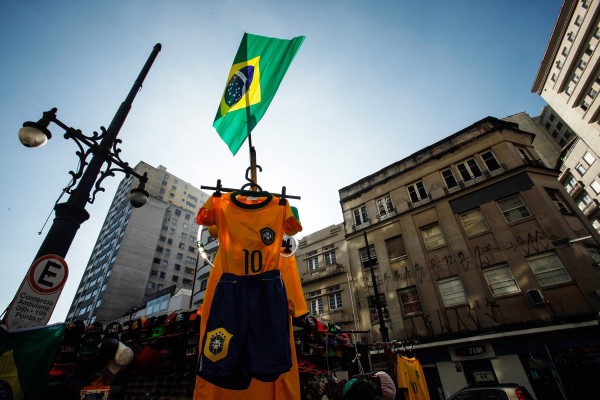

Follow us on:  
|


Brazil’s Central Bank is expected to continue monetary easing policy into 2018 [Xinhua]
Brazilian Finance Minister Henrique Meirelles has hailed recent economic activity data as a sign that the country is solidly moving out of recession.
The Central Bank’s IBC-Br index rose 1.31 per cent in February, the bank said Monday.
It also revised January economic activity up 0.62 per cent.
Meirelles says the latest data indicates the Brazilian economy will show
“meaningful growth rate” by the end of 2017.
The minister’s optimism comes less than a week after the Central Bank announced it would cut the benchmark Selic interest rate by 100 base points to 11.25 per cent – the most severe cut in nearly eight years.
Analysts expect the Bank to continue its monetary easing approach until 2018 whereby the rate falls to between 8 and 8.5 per cent.
The monetary easing policy is expected to boost consumer demand by offering cheaper credit and encouraging foreign investors to inject funds in the country.
The Central Bank is also hoping that Brazil’s runaway inflation rate continues to fall.
The International Monetary Fund believes this boosts the potential for the economy – which has contracted a total of 8 per cent since 2014 – toward a more robust recovery.
The IMF on Tuesday revised up its 2018 GDP growth from 1.5 to 1.7 per cent
The new data and IMF outlook mark a significant turnaround from two months ago when the national statistics agency showed unemployment worsening despite the government’s efforts to put the country back on the business track.
The news that 12.9 million of 102 million in the workforce are unemployed, according to the Brazilian Institute of Geography and Statistics (IBGE), may be slightly offset by the fact that inflation rates are slowly falling.
Last year, it hit 10.7 per cent but has lately started to decline coming close to the desired 4.5 – 6.5 per cent rate range.
Official government data released in January showed that consumer prices in 2016 rose by just 6.29 per cent, well within the Central Bank’s range.
The economy in 2016 contracted by about three per cent as the worst recession in nearly a century continues to challenge hopes of a recovery.
But for this year, the economy will probably grow less than 1 per cent some analysts expect.
The BRICS Post with inputs from Agencies